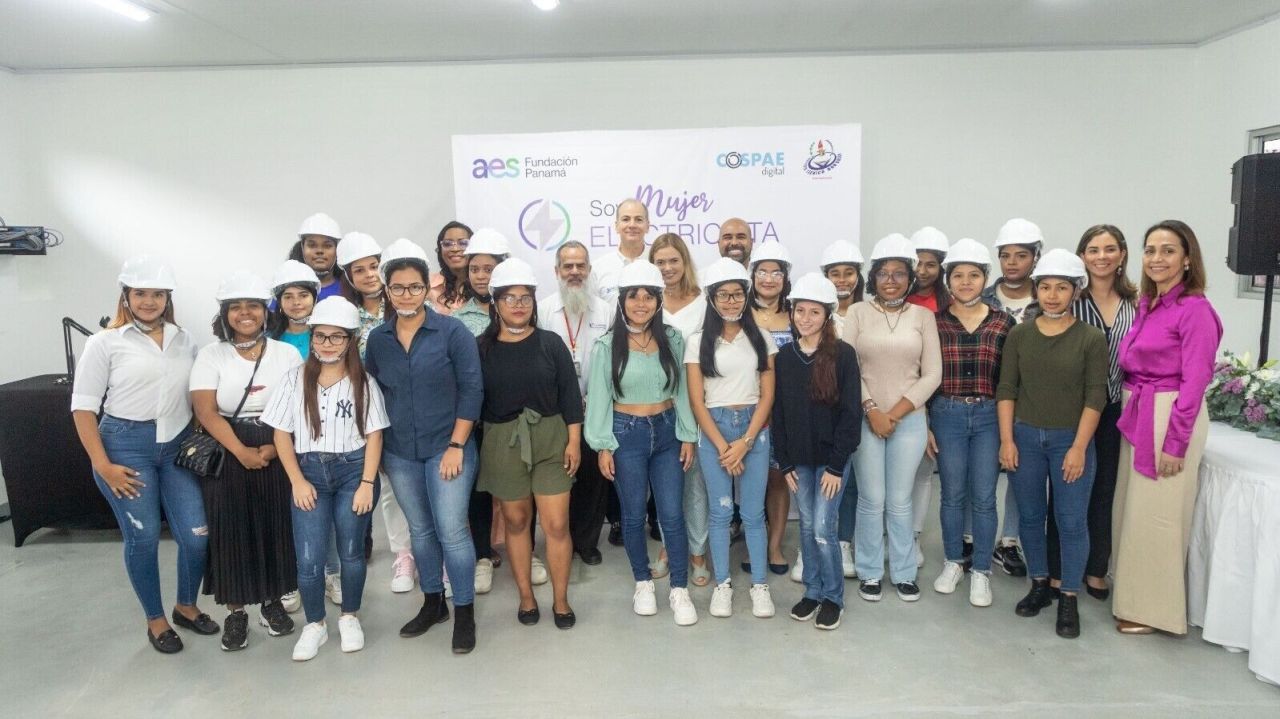"Soy Mujer Electricista" Program
AES Panama Foundation
(
Private sector
)
#SDGAction53636
Description
Initiative designed to empower participants through the acquisition of technical skills in electricity and the fostering of an entrepreneurial spirit. This comprehensive program is specifically tailored for women who aspire to enter the electrical industry and aim to become successful entrepreneurs in this field. Participants will receive specialized theoretical and hands-on training in residential electrical installations, basic industrial electricity, blueprint interpretation, and other related topics.
Instituto Técnico Don Bosco COSPAE (Consejo del Sector privado para la Asistencia Educacional)
SDGS & Targets
Goal 4
Ensure inclusive and equitable quality education and promote lifelong learning opportunities for all
4.1
By 2030, ensure that all girls and boys complete free, equitable and quality primary and secondary education leading to relevant and effective learning outcomes
4.1.1
Proportion of children and young people (a) in grades 2/3; (b) at the end of primary; and (c) at the end of lower secondary achieving at least a minimum proficiency level in (i) reading and (ii) mathematics, by sex
4.1.2
Completion rate (primary education, lower secondary education, upper secondary education)
4.2
By 2030, ensure that all girls and boys have access to quality early childhood development, care and pre-primary education so that they are ready for primary education
4.2.1
Proportion of children aged 24–59 months who are developmentally on track in health, learning and psychosocial well-being, by sex
4.2.2
Participation rate in organized learning (one year before the official primary entry age), by sex
4.3
By 2030, ensure equal access for all women and men to affordable and quality technical, vocational and tertiary education, including university
4.3.1
Participation rate of youth and adults in formal and non-formal education and training in the previous 12 months, by sex
4.4
By 2030, substantially increase the number of youth and adults who have relevant skills, including technical and vocational skills, for employment, decent jobs and entrepreneurship
4.4.1
Proportion of youth and adults with information and communications technology (ICT) skills, by type of skill
4.5
4.5.1
Parity indices (female/male, rural/urban, bottom/top wealth quintile and others such as disability status, indigenous peoples and conflict-affected, as data become available) for all education indicators on this list that can be disaggregated
4.6
By 2030, ensure that all youth and a substantial proportion of adults, both men and women, achieve literacy and numeracy
4.6.1
Proportion of population in a given age group achieving at least a fixed level of proficiency in functional (a) literacy and (b) numeracy skills, by sex
4.7
By 2030, ensure that all learners acquire the knowledge and skills needed to promote sustainable development, including, among others, through education for sustainable development and sustainable lifestyles, human rights, gender equality, promotion of a culture of peace and non-violence, global citizenship and appreciation of cultural diversity and of culture’s contribution to sustainable development
4.7.1
Extent to which (i) global citizenship education and (ii) education for sustainable development are mainstreamed in (a) national education policies; (b) curricula; (c) teacher education and (d) student assessment
4.a
Build and upgrade education facilities that are child, disability and gender sensitive and provide safe, non-violent, inclusive and effective learning environments for all
4.a.1
Proportion of schools offering basic services, by type of service
4.b
4.b.1
Volume of official development assistance flows for scholarships by sector and type of study
4.c
By 2030, substantially increase the supply of qualified teachers, including through international cooperation for teacher training in developing countries, especially least developed countries and small island developing States
4.c.1
Proportion of teachers with the minimum required qualifications, by education level
SDG 14 targets covered
| Name | Description |
|---|
Deliverables & Timeline
Leadership training - PTS Explorer
Electrical Installations
Interpretation of Electrical Blueprints
Entrepreneurship training
Resources mobilized
Partnership Progress

Feedback
Action Network

Type of initiative
Timeline
Entity
SDGs
Geographical coverage
Other beneficiaries
Women aged 18-25 residing in the province of Panama.
Website/More information
Countries

Contact Information
Stephanie Lezcano, AES Panama Foundation Manager

